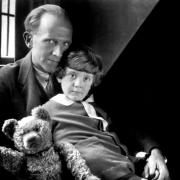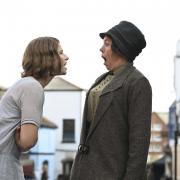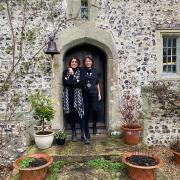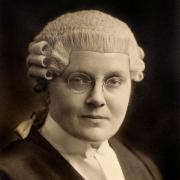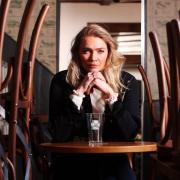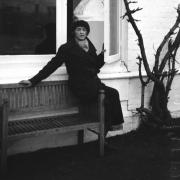Novelist Hilary Boyd was a grandmother of 62 when she sold half a million e-books and topped the Kindle charts. That “quiet” novel, Thursdays in the Park, is now being made into a film starring Charles Dance
For novelist Hilary Boyd, writing was not a lifelong dream. “That was not on the agenda at all,” says the former Roedean pupil, who moved to Bosham from London two years ago.
She was a nurse at Great Ormond Street Hospital until she left to start her own family, then became a marriage guidance counsellor. Both careers were good preparation for her brand of gentle relationship drama – her latest Sussex-set novel The Lavender House details the dilemma of musician, grandmother and divorcee Nancy: should she choose love or family? “I have always just been fascinated by human relationships,” says Hilary. “My books are always about the dynamic of how people cope with each other.”
Hilary went to university to study English at 36 and found that she had a talent for writing. She was in her 40s when she started her first novel.
But it wasn’t until she was 62 and a grandmother that she secured her first publishing deal. It was a long slog before her publishing debut, Thursdays in the Park, became a number one Kindle bestseller in 2012 – at one point overtaking Fifty Shades of Grey.
What was different about that book? “I was writing a lot in my spare time, but I didn’t have that much spare time, especially at the beginning when my children were still at home.
“I wrote Thursdays very quickly and it had a real energy to it. I had listened really hard to the complaints about my previous novels which my agent diligently sent out.
“They all said pretty much the same things: my heroines were weak and I didn’t have enough dialogue – there was too much tell and not enough show.
“In the end I thought stuff this: I’m going to do exactly what they say. I wrote Thursdays with all those things in mind and channelled a really powerful heroine who people really related to.”
The book was a great success: as well as topping the e-book charts with half a million sales, it sold 60,000 copies in paperback. Success came with a label: “gran-lit”.
Hilary’s rather ambivalent about the description: “I hate it in a way because it’s very reductive, but it did give me an identity at a time when it was helpful commercially. People bought Thursdays for their mothers or grandmothers.
“What worries me about the label is it might mean only older women will buy it. People love labelling women’s books – chick-lit and women’s fiction – and it’s derogatory, let’s be honest. But in my case it was helpful as a hook for the media, and people won’t read your books if they don’t hear about them.”
She also thinks she was lucky in that “the zeitgeist was with me”. Although at the time many of the bestselling books were melodramatic psychological dramas in the mould of Gone Girl, the “grey pound” was in the ascendant. “I thought: ‘Well, my books are much quieter than that’. Actually I was lucky because the whole movement of literature for older people moment came along. The feedback I’ve got on that has been huge – so many women of my generation saying: ‘Thank goodness, I can read a book where the heroine is older’. We are an arrogant bunch, the baby boomers – we’re not going gracefully into old age and we’re not over. We’re not thinking to ourselves: ‘Oh, I’m never going to have sex again.’”
And in these novels – her other novels include Tangled Lives and Meet Me On The Beach – there is a certain amount of sex and a lot of love. Where they are unusual is in their focus on the romantic and erotic lives of older people.
Her inspiration comes from real life, usually. “I always start with the female lead. Usually it’s based on something I’ve heard from somebody, a story, something that’s happened to me or something I’ve observed. You start to think about what would happen, what she would have to deal with and how would she recover from it.” In The Lavender House, her latest, protagonist Nancy meets a country music-playing, whiskey-drinking Adonis, and has to weigh her love for him against heavy domestic obligations. Nancy is not a typical, impetuous romantic heroine, as Hilary says. “You have to have that sort of weakness within the character. If they were a stronger character they might have made different decisions and there wouldn’t have been a story.”
And what may be perceived as Nancy’s weakness is also her strength – as matriarch of a dysfunctional but loving family. Hilary continues: “I’ve seen it happen to so many of my friends where their life is sort of subsumed by the whole family thing. A lot of people my age still work, they look after their grandchildren and very often they don’t have the space that at our age we have earned, to do what we want to do. A lot of people are torn three ways, particularly if they have older parents.”
The set-up might not be the stuff of fairy tales, but the book is sweet and tender.
And for Hilary, first published after 20 years of rejection, there’s been a fairy tale ending too. Thursdays in the Park has been adapted for film by Charles Dance, who will also direct and play the male lead. Shooting is expected to begin in May. “Charlie is a friend and he doesn’t have to, but he’s involved me at every stage. The producer, Hilary Heath, is also an old friend so we all talk about it a lot.
“He’s been very faithful to the book but he’s also changed things so they will work much better as a film.”
After two books set in Sussex – The Lavender House and Meet Me On The Beach – Hilary is having a break from these environs: “Having only moved here two years ago, it’s really nice to set stories in a place I am still getting to know and that I love, but I also feel that you have to ring the changes. I will maybe do another London novel before coming back to Sussex.”
And now she has found her creative flow, there’s not much fear of the river running dry, it seems. “I’ve got at least four more ideas. I hope I never run out of ideas but I don’t think I ever will.”
The Lavender House, published by Quercus, is out now in hardback at £16.99
More…
• Mark Curry on life in Eastbourne and the golden age of children’s television - Television presenter and actor Mark Curry first fell in love with Eastbourne when he visited for Blue Peter. Last year he moved there. Mark spoke to Jenny Mark-Bell about the golden age of children’s television and his part in the 10th anniversary production of Wicked in London.




